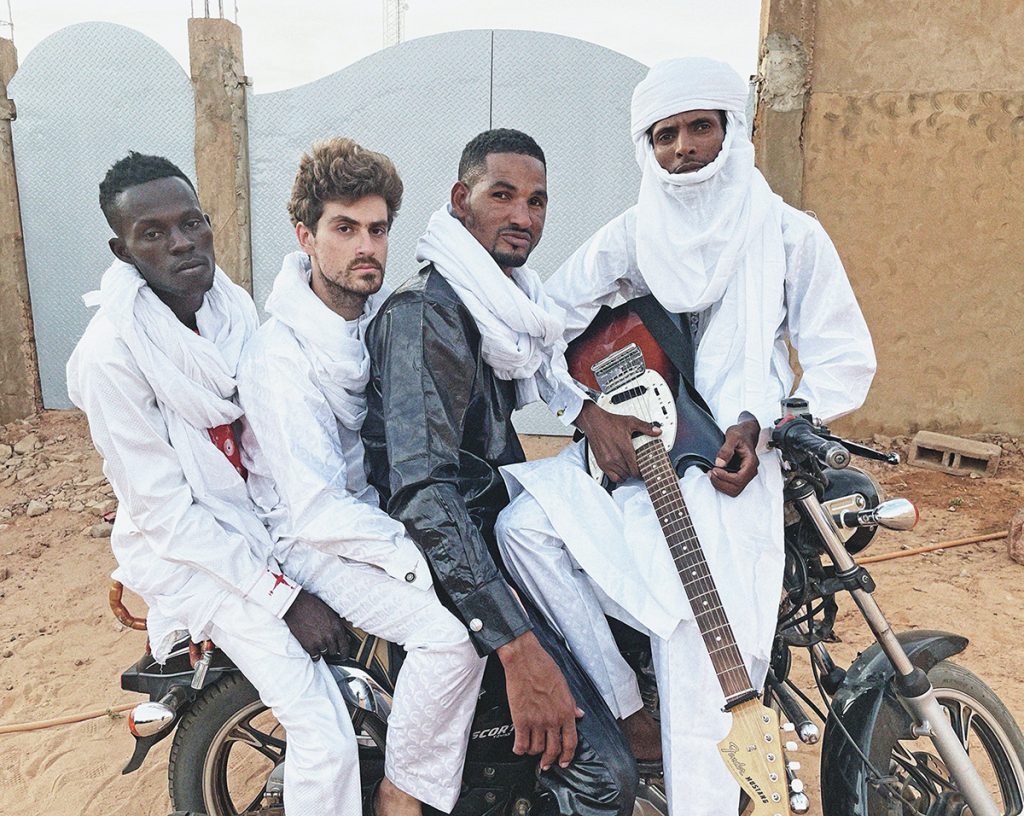
Afrique Victime captures Nigerien guitarist/singer Mdou Moctar at moment of transition. Having built a substantial audience on the strength of his band’s incendiary lives shows, he looks forward with ambition to using that platform to make some statements. He also looks back, acknowledging past personal phases and musical heroes.
Moctar grew up in Agadez, Niger, where he pursued musical interests against his family’s wishes. He attained anonymous regional stardom in 2008, when his early, electronic recordings swept through the desert, passing from one cellphone to the next without accompanying data. It was picked up by the Sahel Sounds label and, under the place-holding title “Autotune,” released on the compilation Music From Saharan Cellphones. Moctar’s subsequent recordings encompassed acoustic and electric guitar settings, and when he finally started touring the U.S. in 2017, his quartet wowed crowds with an attack that merged a bluesy, Sahel desert sound with loads of unabashed shredding.
2019’s Ilana (The Creator), which was mostly recorded on a tour stop in Detroit, captured the live band’s sound. Afrique Victime, Moctar’s first album for Matador, builds upon it, retaining the bold, virtuosic guitar leads, loping beats and impassioned Tamashek (the Tuareg language) singing. But Afrique Victime doesn’t just bring the boogie. The album’s production is denser, with massed backing vocals, electronic effects and field recordings woven into the basic quartet’s tracks. It’s also more varied, with acoustic episodes that acknowledge Moctar’s earliest playing experiences and over-the-top electronic percussion that recalls both his first recordings and the music of an early inspiration, Abdallah Ag Oumbadougou, who died in January 2020. Afrique Victime is a rich recording that doesn’t give up all of its secrets after a couple spins.
Moctar continues to sing mainly in Tamashek, with a little French mixed in, but if you get ahold of the lyrics, you’ll find that while some of the issues he addresses are local, he’s talking to the world. The Sahel has been the site of cultural and military conflict in recent times. When Moctar speaks back against the politics of exploitation and basic human intolerance that have made his neck of the proverbial woods a rough place to live, he connects it to broader patterns that afflict all of Africa—and the rest of the world. By linking the regional to the universal, Moctar has come up with an album with broad potential appeal and an undiluted impact.
—Bill Meyer






